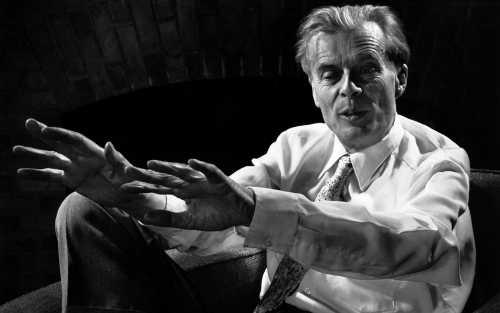What can we learn from the perennial philosophy of Aldous Huxley? - Jules Evans | Aeon Essays
Curated from: aeon.co
Ideas, facts & insights covering these topics:
4 ideas
·2.97K reads
13
Explore the World's Best Ideas
Join today and uncover 100+ curated journeys from 50+ topics. Unlock access to our mobile app with extensive features.
The Universal God
Aldous Huxley's The Perennial Philosophy(1945) is an extraordinary work of synthesis, introducing global (particularly eastern) spirituality into mainstream western culture.
The Philosopher has translated some untranslatable insights from the Bhagwad Geeta, The Upanishads, the teachings of Buddha and associated Zen masters. The main aim of the book is to shed light on the stupidity and barbarism of various religions and try to make people see a Universal God.
162
1.1K reads
Fresh Take On Religion
- Modern society has been described as the Age of Noise, and an Organized Lovelessness.
- Advertising is revealed to be an organized effort to extend and intensify craving.
- People in the modern age worship progress, technology, and their nation-state, all of which can be described as a 'religion'.
- The dogma of such religions was profoundly criticized in the classic books, while paving the way towards newer ways to find God, like meditation.
The Author and Philosopher's fresh take on religion, shaping it as an 'empirical spirituality' was a huge influence in the 1960s and which has since then led to more people (now 27% in the US) being 'Spiritual but not Religious'
166
602 reads
Constructing One's Reality
Aldous Huxley was heavily criticized after his death by newer philosophers who didn't subscribe to the Perennial Philosophy.
While the author insisted that the ultimate mystical experience is the moment of pure oneness with God where the concepts of 'I', language, image and culture are dissolved, his critics argued that all religions are true and some of them are truer than the others.
One of the critics states that human beings construct reality using their bodies, rituals, words, actions and cultures.
142
517 reads
The Ultimate God
Perennialism is objectivist and essentialist, however, the individualism of defining God through self-experience (like meditation) make it subjective.
Bentley Hart, an orthodox theologian states that there can be many gods, but only one ultimate God. The spiritual multi-verse is filled with beings having assorted powers (Demi-Gods) that a human being can connect to and manifest in multiple ways.
The One God is the ultimate, unmanifested, and unconditioned eternal essence from which existence arises and on which all the Universes depend on.
173
754 reads
IDEAS CURATED BY
Nimai Arya's ideas are part of this journey:
Learn more about religionandspirituality with this collection
How to challenge assumptions
How to generate new ideas
How to break out of traditional thinking patterns
Related collections
Similar ideas
7 ideas
4 ideas
The Most Important Question
medium.com
Read & Learn
20x Faster
without
deepstash
with
deepstash
with
deepstash
Personalized microlearning
—
100+ Learning Journeys
—
Access to 200,000+ ideas
—
Access to the mobile app
—
Unlimited idea saving
—
—
Unlimited history
—
—
Unlimited listening to ideas
—
—
Downloading & offline access
—
—
Supercharge your mind with one idea per day
Enter your email and spend 1 minute every day to learn something new.
I agree to receive email updates
